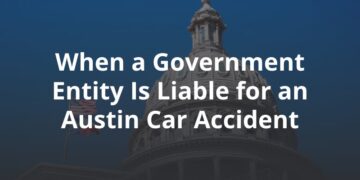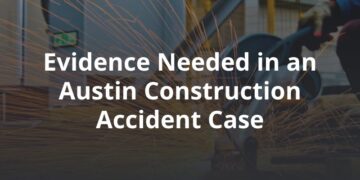If you’ve been injured in a car accident, slip and fall, or other personal injury incident, you probably just want a fair settlement to pay for your medical expenses and other losses. You may not know that a lot goes on behind the scenes, including other parties claiming a right to your settlement money through liens.
An experienced personal injury lawyer can explain the role of liens and how they may impact your case.
What Is a Lien?
A lien is a right of another party besides the original owner to specific property as security for a debt. For example, if you own a house, you may give a lien to your mortgage service provider or a contractor who performs work on your home.
In personal injury cases, other parties may have a right to some of your settlement proceeds, such as those who provided you with medical treatment or initially paid for it. Liens help creditors protect their rights and ensure they will receive payment for their services.
How Can a Lien Affect Your Personal Injury Case?
If you received medical treatment after being injured by someone else’s negligence, you may need to satisfy specific liens before you can recover your settlement money. When a lien is present, you cannot receive the settlement until these liens are satisfied.
If you ignore a lien, the provider may be able to file a lawsuit against you. If the entity you owe the lien to is an insurance provider, failing to satisfy the lien could also affect your benefits.
Types of Liens on Personal Injury Proceeds in Texas
Medical liens in personal injury settlements are common. Under Texas law, hospital liens apply if a person received medical care within 72 hours after an accident caused by another person’s negligence.
In addition to hospitals, other entities may have a legal claim against your personal injury proceeds, such as:
- Medicare
- Medicaid
- Health insurance
- Workers’ compensation insurance
- Employee benefit plans
- Other medical providers
Your personal injury lawyer can review your case, identify the parties who have a lien against your proceeds, and help you protect your rights throughout the claims process.
Liens vs. Subrogation
A similar concept to liens that you may hear when you are dealing with your injury claim is subrogation. Subrogation is the right of your insurance company to request reimbursement from the at-fault party after they have paid your claim. Insurance companies typically include this right as part of your policy.
For example, if you filed a claim under your collision insurance policy, your auto insurance provider may have initially paid your claim. However, your auto insurance provider has the right to pursue reimbursement for the amounts it paid for your damages from the at-fault party’s insurer. Subrogation allows you and your insurer not to have to pay for accident-related losses that were not your fault.
For the most part, subrogation is handled by the insurance companies. You may not receive notice that this process is happening, and you will not receive legal service like you would if a lien was placed on your potential proceeds. You may be able to receive repayment for your deductible through subrogation.
How Can an Austin Personal Injury Attorney Help With a Lien?
The amount of the lien is deducted before you receive your settlement, so you likely want to reduce its value as much as possible. An experienced Austin personal injury lawyer can assist with all aspects of the claims process, including negotiating liens.
Your lawyer may be able to get the lienholder to reduce the amount of money they will accept to satisfy the lien. This is one of the many reasons it is important to work with an experienced personal injury lawyer after an accident.
Contact Our Personal Injury Law Firm in Austin, TX
If you’ve been injured in an accident in Austin and need legal help, contact our Austin personal injury lawyers at FVF Law to schedule a free consultation with our team.
FVF Law
3101 Bee Caves Rd #301, Austin, TX 78746, United States
(512) 982-9328






